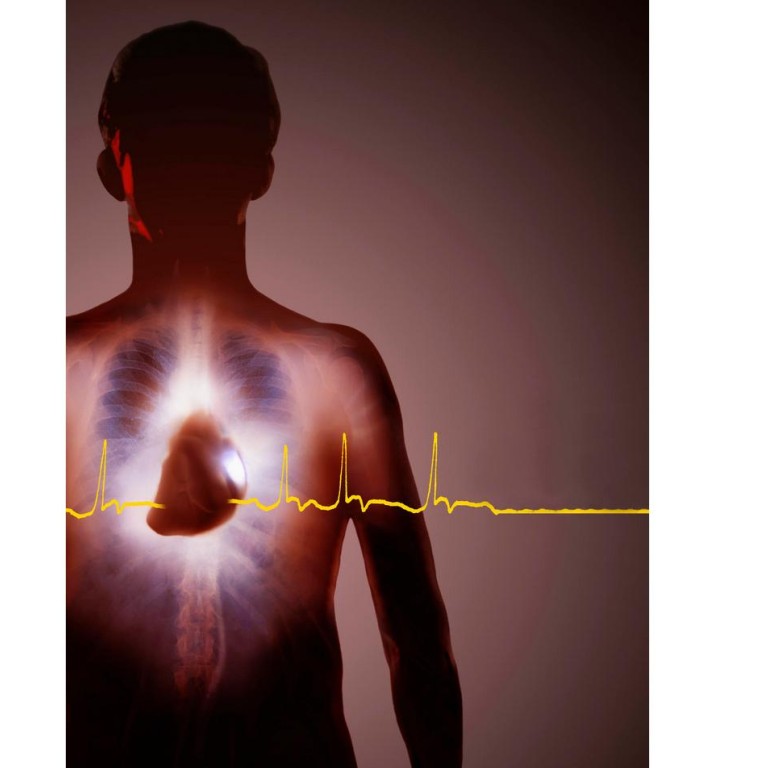
Young man's death sparked the establishment of Sads Foundation
When Dwayne Chow died suddenly last year his family was plunged into despair and confusion. The 31-year-old had always been happy and healthy. So what had happened?
The night before, the family shared a meal, and Dwayne stayed over at his parents' house. He seemed well when his mother Shirley Chan Chow gave him a hug before he went to bed. But Dwayne didn't wake up the next morning. His death happened so fast that he never even went to hospital; he was taken straight to the mortuary.
An autopsy failed to reveal what had happened. The toxicology tests were clear and the pathologist reported nothing wrong with his heart or brain. He'd had a full medical check-up a few months earlier which had come back positive. "We were totally lost, we didn't understand. He led a very healthy life," says Chan Chow.
Because there was no known cause of death, a death certificate wasn't issued for months. The police pestered the family with questions, making them go over the events of their last evening with Dwayne, and compounding their anguish.
Racked by grief, Chan Chow began her own search for an answer. It was a quest that began online and then took her to Britain. Her investigations led her to establish the Sads Hong Kong Foundation, which she launched three months ago.
Sads (Sudden Arrhythmia Death Syndromes) is a group of genetic heart rhythm abnormalities that can cause sudden death in young, apparently healthy people. It's an inherited condition, and each child of an affected parent has a 50 per cent chance of getting it.
"I don't want people to have to go through what I went through. I set up the foundation to provide a platform for people who suffer from Sads, to give them someone to call, and to educate people about it," says Chan Chow.
Death strikes out of the blue, but there are warning signs: fainting or seizures during exercise or after a sudden shock, chest pains, shortness of breath during exercise, and a family history of unexplained sudden death under the age of 40.
Dwayne exhibited some of those symptoms. Chan Chow recalls how he fainted once as he was getting out of a car. "I thought he'd twisted his ankle, but he hadn't. And his heartbeat might have been a bit slower, but that can happen in the young and healthy. Sometimes he might be tired, but I thought he'd been working hard. You make all kinds of excuses, without knowing that these are all symptoms," she says.
On a trip to Britain, she visited the Sads Foundation, and learnt more about the "silent killer". Discovering that Sads is a hereditary condition, she and her immediate family went for a screening at the Princess Margaret Hospital when she returned, and she learned more about it.
"Our close family members have been checked," she says. "Unfortunately, it runs in the family. We didn't know that before. But there are some ways of preventing it."
There are at least five different Sads-related conditions: Long QT Syndrome, Catecholaminergic Polymorphic Ventricular Tachycardia, Short QT Syndrome and Brugada Syndrome. Dwayne suffered from the latter. Preventative care depends on the condition and symptoms, and ranges from avoiding certain drugs to taking beta blockers.
Sads claims the lives of 4,000 young people in the US every year. In Britain, it kills 600. We don't know how many young people die in Hong Kong due to Sads because there are no records, and it's likely that many cases are not identified, but Chan Chow hopes that will change. The foundation plans to fund research into Sads locally and keep statistics.
So far, five families have approached the foundation asking for advice. "The five cases were all people with family members who have already passed away. They were lost and didn't know what had happened, and they wanted someone to talk to," says Chan Chow. "They were also concerned that it might be genetic, so we arranged for them to speak to doctors to see if other family members might be affected."
Not all doctors and hospitals here are familiar with Sads. But Chan Chow says she has relied on three for advice: the Queen Mary, Princess Margaret and the Prince of Wales. The foundation can give the names of private hospitals in an emergency.
"I truly believe that, in the battle against Sads, the critical difference between life and death lies in an awareness of Sads; an understanding and openness about what Sads is, and the availability of the appropriate prevention for those affected. These efforts will give us a chance of saving lives and stopping similar tragedies [to ours]," says Chan Chow.
Public forum: What is Sads? October 6, 10.15am-noon, room S421 HKCEC. Free entry. In Cantonese.

